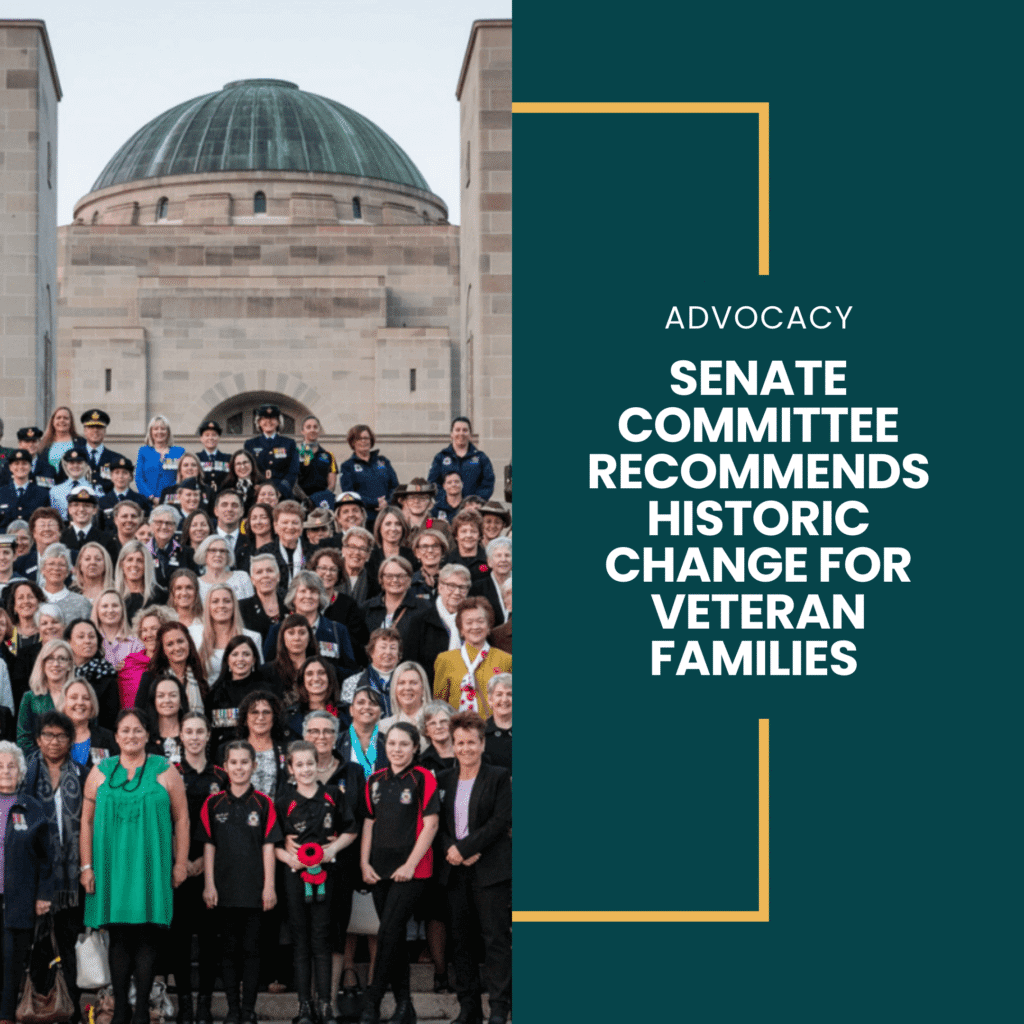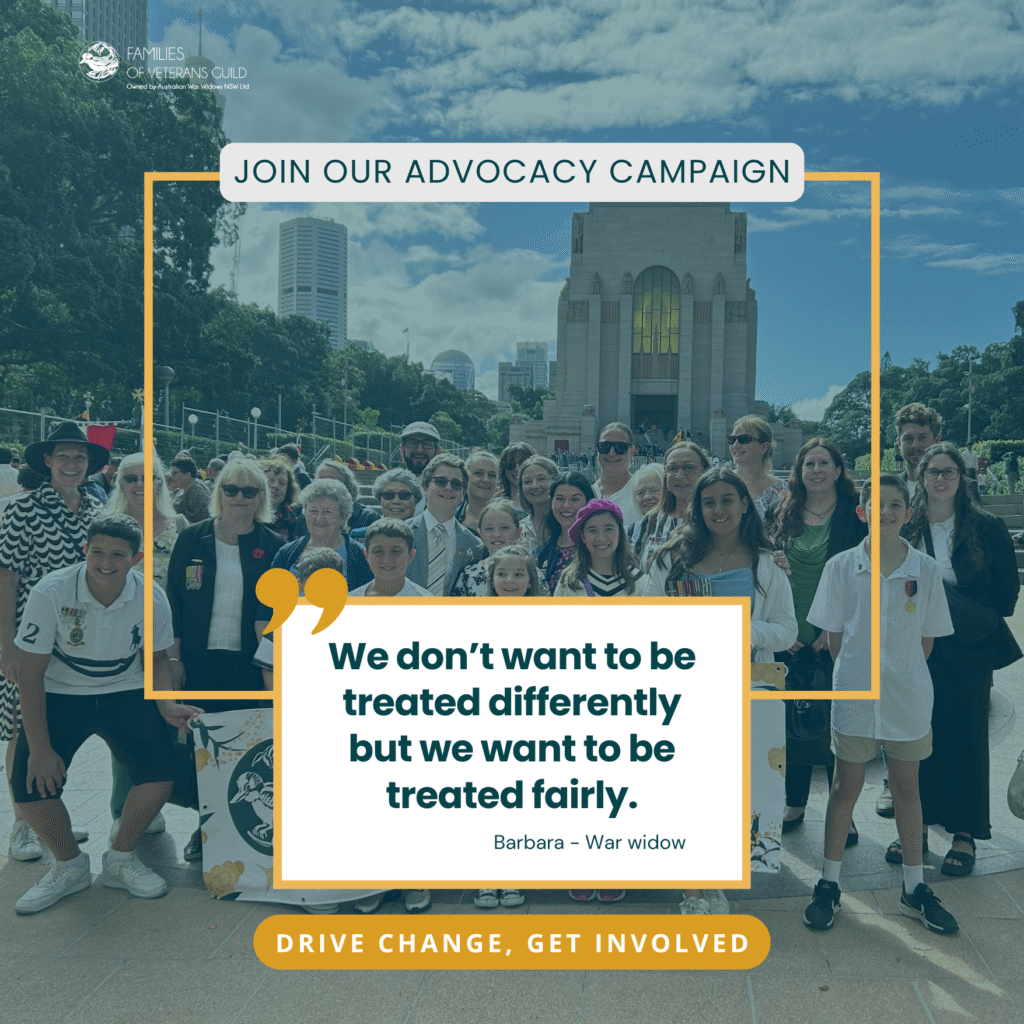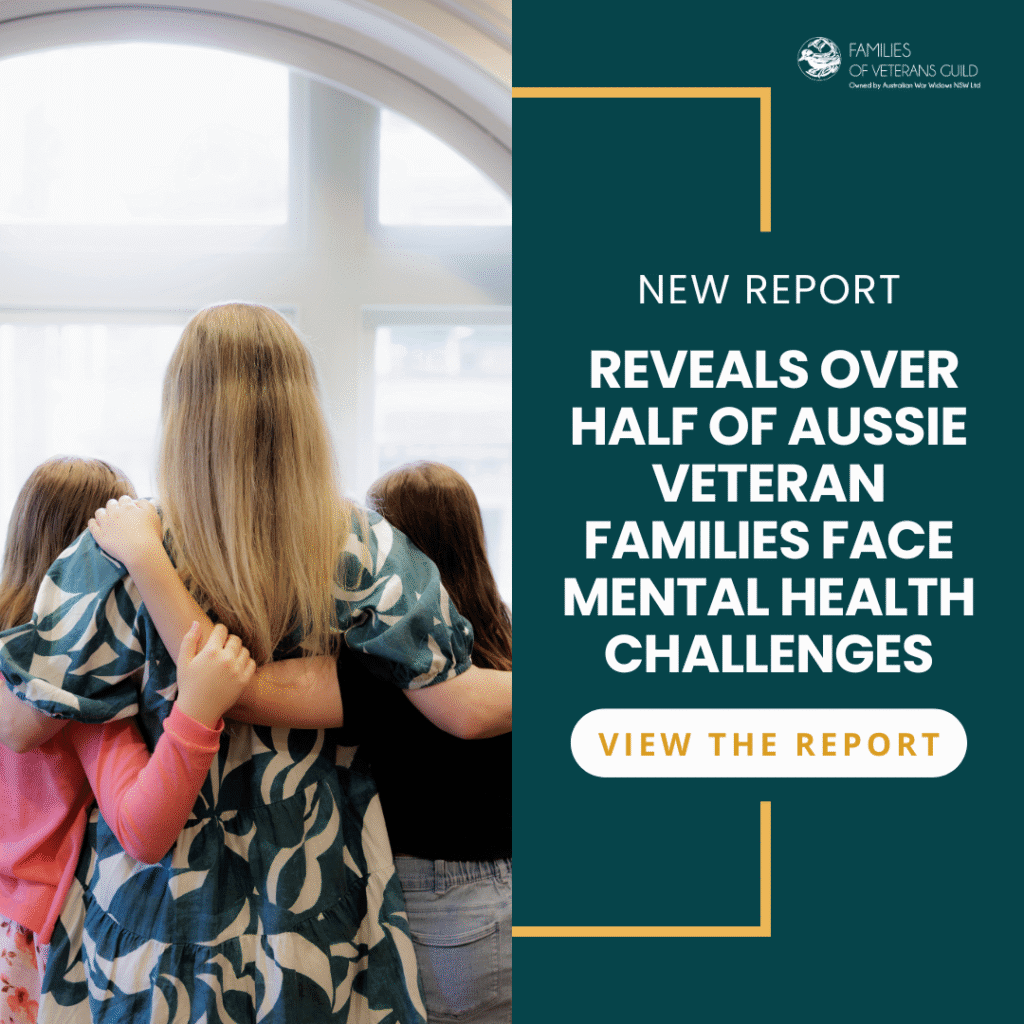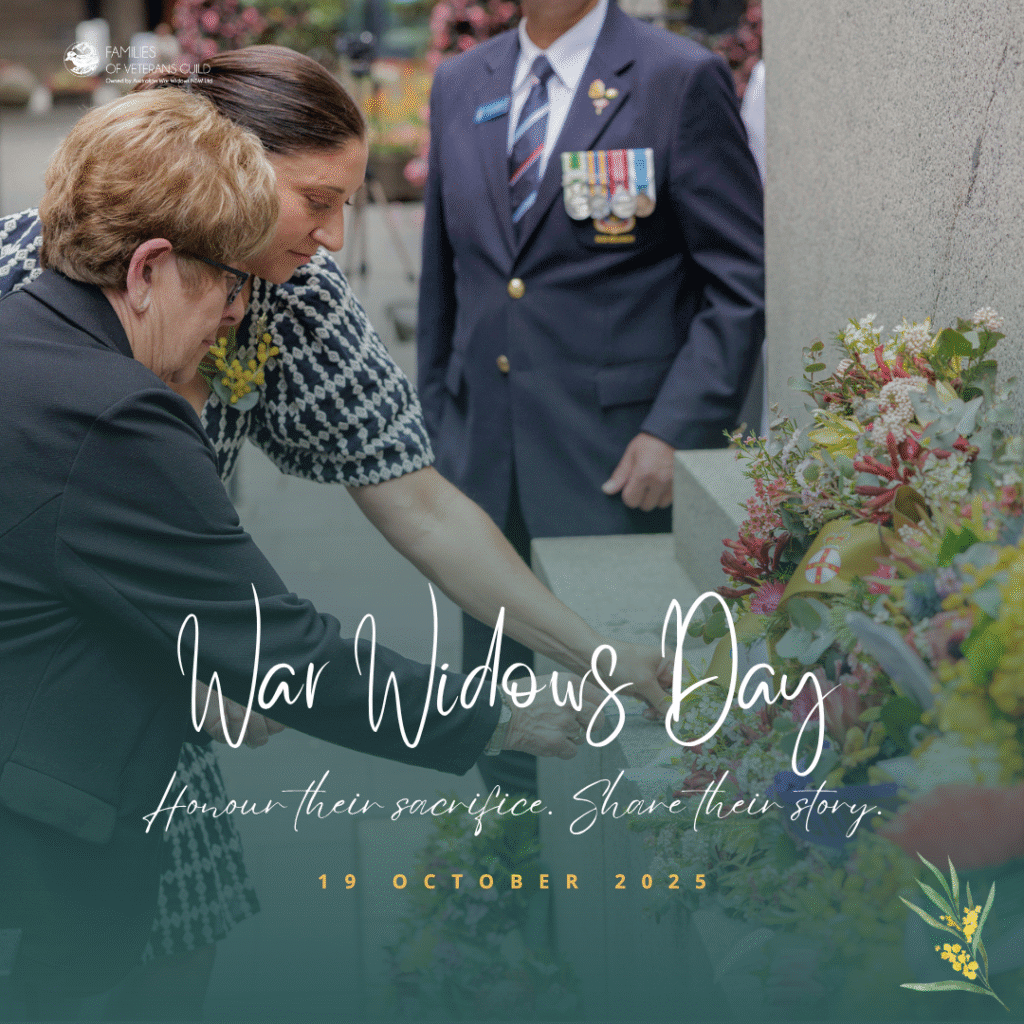Senate Committee recommends historic change for veteran families
On 29 August 2025, the Senate’s Foreign Affairs, Defence and Trade Legislation Committee made a landmark recommendation: that the legislation establishing the Defence and Veteran Services Commission should be amended to specifically include veteran families.
If implemented by the government, this will be the first time that veteran families have been specifically included in legislation governing the veteran sector. We are at the starting blocks when it comes to properly caring for and supporting the needs of veteran families in Australia, and this important step not only sends an important signal to the families of veterans, it also creates an obligation to include them.
Why this matters for veteran and defence families
While Australia has seen significant reforms in the care of veterans—and rightly so—their families have been left behind. The model of care for defence families and veteran families has barely changed since the end of WWII.
Without families specifically being included in the legislation that governs the system, there is no obligation to support them or inquire into their needs. The majority of families remain largely invisible and the impacts that defending Australia has on them are left unmitigated.
A shift from rhetoric to action
While we have seen rhetoric change in the last few years and the word family included in initiative and policy titles; it hasn’t translated to practical, impactful and meaningful change for them.
This recommendation by the Senate’s Foreign Affairs, Defence and Trade Legislation Committee however, could start to change this. It would mean from the very start the Defence and Veteran Services Commission has an obligation to include families and inquire into the impacts of service on them. It has an obligation to make recommendations in their interests that go further than helping Defence and DVA to hear more from them.
Our contribution to the review
As part of the inquiry, we made a submission highlighting the urgent need for the explicit inclusion of families of veterans in the legislation. We argued that families are currently left out of veteran-related legislation, giving them limited standing in the system despite carrying the ongoing impacts of service. Schedule 9 presents an opportunity for Parliament to change this by ensuring families are visible and properly recognised.
Our submission also called for a stronger object for the new Commission—one focused on reducing the incidence of suicide and suicidality among veterans and their families, rather than simply improving suicide prevention. We recommended that the Act include a clear definition of “family” based on the Australian Bureau of Statistics framework, recognising the wide range of relationships affected by service. We also reinforced the need for independence, accountability and transparency in the Commission to rebuild trust.
Our CEO also appeared at the Senate hearings to provide evidence, highlighting the lived experiences of defence and veteran families and advocating on their behalf.
The road ahead
We have a long way to go when it comes to providing support for all families of veterans in Australia. By implementing this recommendation, the government has the opportunity to they are listening and most importantly demonstrate that the families of veterans matter.




